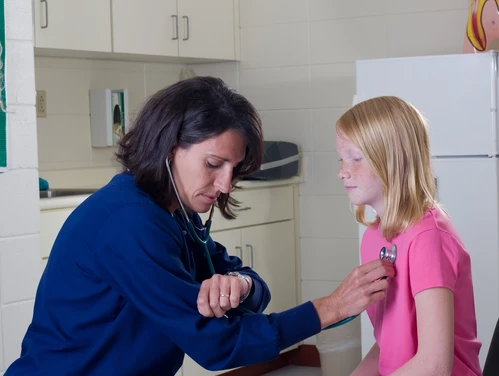Table of Contents
Content Information
The school nurse will instruct the paraprofessional on the procedures and protocols related to medication receipt, storage, waste and minimization.
Medications counting and arriving to school considerations:
- Inform parents that the first dose of a newly prescribed medication should not be administered at school if at all possible.
- The school nurse should explain the medication to the student prior to the first time it is administered at school.
- Medication should be delivered to the school or program by a responsible adult in an original pharmacy labeled container or manufacturer’s package.
- Administration of nonemergency medication is restricted to the school nurse and staff trained to administer medications unless parents have provided written consent for self-administration per policy.
- Medication is counted and documented upon receipt and signed by the school or program member and the adult delivering the medication or two staff members
- The school or program only keeps the medication needed for the student and the remainder is sent home with the responsible adult.
- The school nurse is notified by personnel whenever a new medication is brought to the school or program.
- Controlled medication is counted upon receipt and with each dose by the personnel and responsible adult or two personnel and this count is documented with the signature and initials of the 2 counters (this does not require a nurse)
- Counts by two personnel should be conducted and documented with the count, signatures, and initials of the two counters no less than weekly.
Medication storage considerations:
- All nonemergency medication should be stored securely in locked storage.
- Medications requiring refrigeration should be stored in locked refrigerators per the temperature specifications of the manufacturer, and the refrigerator temperature should be monitored on a regular basis.
- Medication should not be stored with food or specimens
- Emergency medications should be stored securely with a plan for quick access to the learner’s location.
- Controlled substances should be double-locked.
- Medication should not be left unattended or in an unsecured room.
Medication minimization, return, and waste considerations:
- Schools and programs practice minimization and only maintain what is needed
- Any leftover medications should be returned to the parents at the end of the school or program year, upon transfer or if medication is discontinued or expired.
- Medication return should be documented, dated, timed, and signed by the personnel and the parent.
- Medications not retrieved by parents should be disposed of according to packaging instructions and state health and environmental protection requirements.
- Document in the student’s record that medication was disposed of.
- Consider police and school resource officers to pick up leftover medication for the two national “Take back” days for disposal and to decrease drug diversion risks.
- Schools or programs generating hazardous waste from the left over voluntary stock medications or medications that parents do not pick up must maintain fiscal responsibility and comply with the disposal through the Resource Conservation and Recovery Act (RCRA).
- Iowa School Hazardous Waste and Medication Management Guidance (2022)
